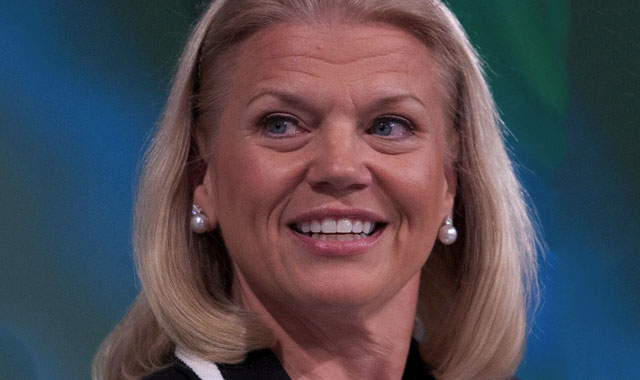
IBM’s compensation plan for top executives drew record shareholder opposition after the board boosted CEOGinni Rometty’s pay package more than 60% last year.
About 46% of the votes cast at the 25 April annual meeting in Tampa, Florida in the US, went against the board’s pay plan for top bosses, according to a regulatory filing on Friday.
That’s IBM’s lowest result since votes were first mandated for public companies in 2011.
While it isn’t binding, 30% opposition is generally considered the threshold for a losing vote and a result that should prompt directors to address shareholder concerns.
Investors including California State Teachers’ Retirement System and Florida’s State Board of Administration rejected the proposal that gave Rometty a US$32,7m pay package, her biggest since taking over the company in 2012.
It came with a one-time grant of stock options that IBM valued at $12,1m. That might understate their value by perhaps 50% or more because of the way IBM values options.
The board “will review the results of this vote, as is its customary practice”, IBM said in an e-mailed statement. “The company will continue to align its compensation practices with the best interests of our shareholders, and balance those practices with the flexibility needed to attract and retain great leaders for this unique moment in the technology industry.”

The strike prices for Rometty’s premium options were “below the average three or five-year stock price levels, providing little corresponding benefit to long-term shareholders,” Jacob Williams, corporate governance manager at Florida’s State Board of Administration, said in an e-mail. The premium stock options vest in 2019 if certain stock-price targets are met.
“Ongoing concerns are exacerbated by the increased magnitude of CEO pay,” proxy adviser Institutional Shareholder Services wrote in a report dated 28 March, recommending clients vote against the board’s pay proposal. “The lack of disclosed performance targets under both the annual and long-term incentive programs is unusual and inhibits shareholders’ ability to assess the programmes’ rigour.”
In a separate report, rival proxy firm Glass Lewis & Co flagged IBM’s “repeated use” of one-time awards and Rometty’s “already high compensation levels” as reasons for concern, advising clients to cast votes against the pay programme.
Low say-on-pay support levels are rare. On average, S&P 500 Index companies typically secure approval for executive pay plans from investors owning more than 90% of outstanding shares, according to data compiled by Bloomberg.
Since becoming CEO, Rometty has struggled to offset declining revenue from IBM’s older businesses with more recent efforts focused on cloud-related technologies and artificial intelligence. The company’s shares have lagged both technology peers and the S&P 500. — (c) 2017 Bloomberg LP




